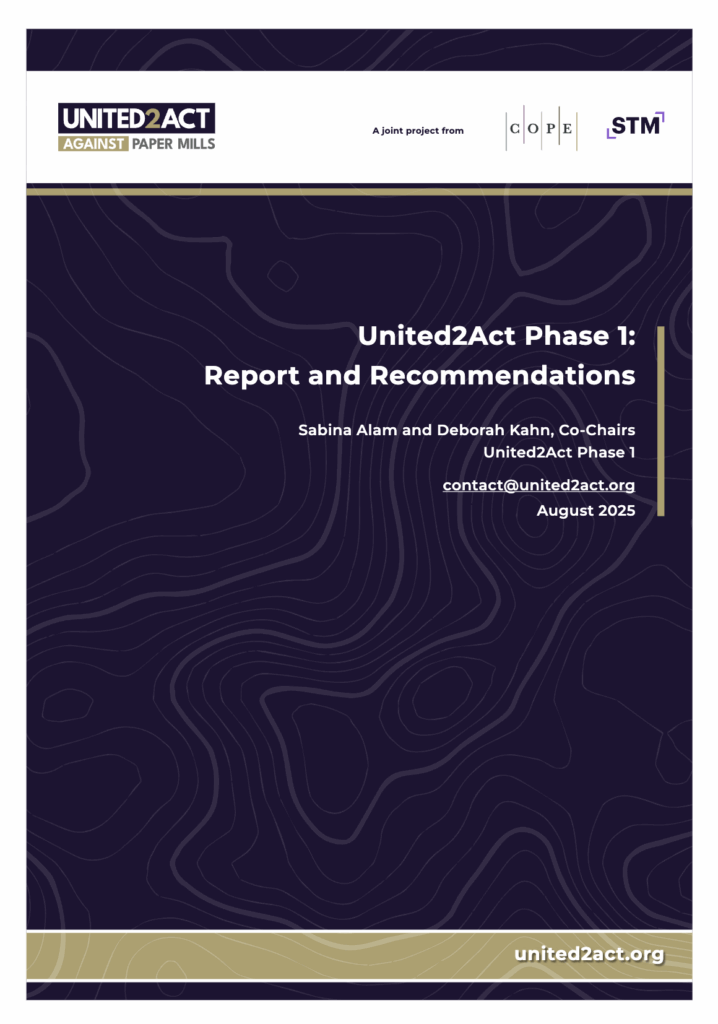In case you missed it: Along with others in the research community, STM has responded to NIH’s request for information on limiting publishing costs. We’ll continue to engage with NIH, OSTP, OMB and Congress to share our concerns about grant expense restrictions in publishing and in general. Access the response here.
Author: Felicia Bowling
Cloudflare adds to their AI toolkit
The CDN provider has recently announced new tools and services for the era of AI. The two latest ones are their Content Signals Policy, which makes robots.txt indications more specific, and responsible AI bot principles. These may help bridge the gap between current practices and evolving legislation by providing effective tools to manage AI bots.
Research & Innovation Days in Brussels
Discussions at the R&I Days centred around the next EU funding programme for research (the successor of Horizon Europe), the new European Competitiveness Fund and the many unresolved questions about how their governance will work. A balance between funding for strategic investments, selected top-down, and blue-sky research (mainly funded through the ERC) will need to be found for the budget 2028-34. A novelty in the new programme will be that dual-use research will be allowed, but the details of how it will be regulated still need to be ironed out.
Upcoming EU initiatives
We’re expecting a busy autumn: after conducting consultations over the summer, the EU Commission will release a strategy for AI in science on 7 October and a Data Union Strategy at the end of October. A consultation was just launched on a Digital Omnibus, a package to review and streamline digital legislation to alleviate compliance burdens — which we will participate in to ensure that protection standards are not lowered. Further consultations are expected on the ERA Act and on science diplomacy — the very same theme as our Frankfurt Conference.
Danish working group on copyright and AI publishes recommendations
The Danish Ministry for Culture tasked a dedicated working group to explore questions about the interplay between AI and copyright. They delivered a very good set of recommendations, including recommendations on effective transparency in training data. EU countries will continue debating this topic into the fall, exploring potential solutions to favour AI licensing.
STM submits comments on upcoming ERA Act
The European Commission is planning an European Research Area (ERA) Act for Q3 2026, with the aim of further strengthening the European internal market for research and facilitating the free circulation of researchers and knowledge across EU countries. Measures not favourable for publishers (including Green OA measures such as the Secondary Publication Right) nor conducive to Open Science are being considered, so STM pushed back on those aspects whilst highlighting the publishers’ contribution to the ERA and the growth of funded OA in the EU.
EU Parliament resumes negotiations on AI & copyright
The EU Parliament’s Legal Affairs Committee is resuming discussions on its position on AI and copyright. Whilst not being a legislative instrument, this is quite important as it will provide political indications to the EU Commission. A draft was presented over the summer by MEP Axel Voss to get the conversation started. STM reached out to the key negotiators to suggest amendments to improve aspects of the report related to exclusive rights, contractual freedom, and transparency.
AI Act implementation package
Three key documents were released over the summer for the implementation of the EU AI Act’s rules for providers of general-purpose AI models:
- The Code of Practice outlines voluntary measures regarding transparency, copyright and safety and security.
- These guidelines clarify the scope of the definition and obligations of providers.
- The standardised template provides a summary of training content, which will help ensure compliance and support copyright holders in exercising their rights.
Despite the extensive feedback offered by STM and other rightsholders throughout the (often untransparent) drafting process, the outcomes don’t fully reflect the concerns raised and lack ambition. STM prepared an analysis of what these documents mean for its members.
STM submits comment on NIH’s proposal to cap publisher fees
Along with many publishers and others in the research community, STM submitted a comment to NIH in response to their “Request for Information on Maximizing Research Funds by Limiting Allowable Publishing Costs” In addition to the submission, STM has and will continue to engage in dialogue with NIH, OSTP, OMB, and Congress on our concerns about restrictions in grant expenses, both in general and with respect to publishing.
United2Act Phase 1: Report and Recommendations
Paper mills are a multi-million pound industry profiting from the sale and publication of manuscripts containing low value or fraudulent content. They are destroying the integrity of research and publishing practices.
 United2Act was established in October 2023, as an international multi-stakeholder project with the aim of tackling the growing problem of paper mills.
United2Act was established in October 2023, as an international multi-stakeholder project with the aim of tackling the growing problem of paper mills.
This report describes the process and outcomes of the first phase of United2Act, which was financially supported by STM and COPE, ran for 18 months and concluded in June 2025.
Guidance, publications and training resources developed by five working groups are detailed in the paper. As United2Act moves into the next phase, a 2-year collaborative project centered on implementation and outreach, we invite the community to join us in using the resources created.
“This whitepaper is both a testament to what we can achieve through collaboration and a call to action for the global research community. Phase 2 of United2Act is about putting the resources we’ve developed through the initiative into practice – ensuring that everyone in the scholarly community, including funders and universities, is informed and equipped to address the challenges posed by paper mills. Meaningful progress depends on shared responsibility and cross-sector collaboration; every stakeholder has a role to play.” – Dr. Nandita Quaderi, Senior Vice President and Editor-in-Chief of the Web of Science, Clarivate; co-chair, United2Act

 JOIN
JOIN